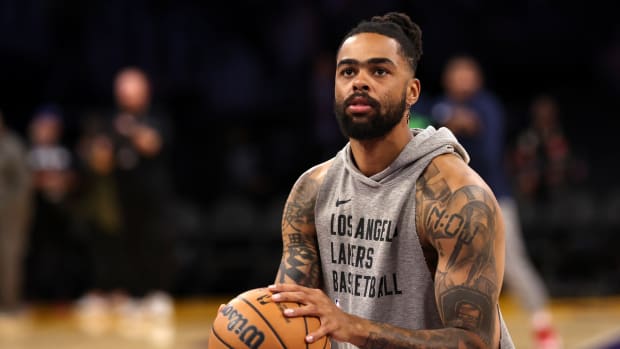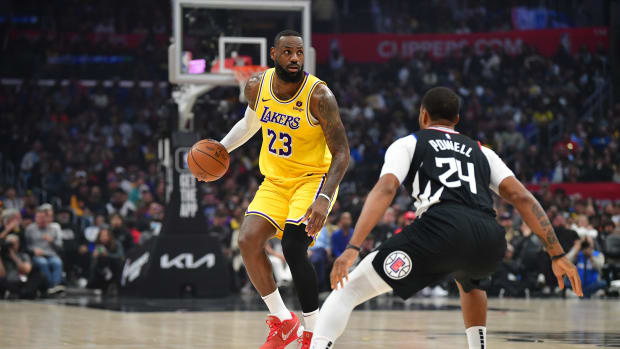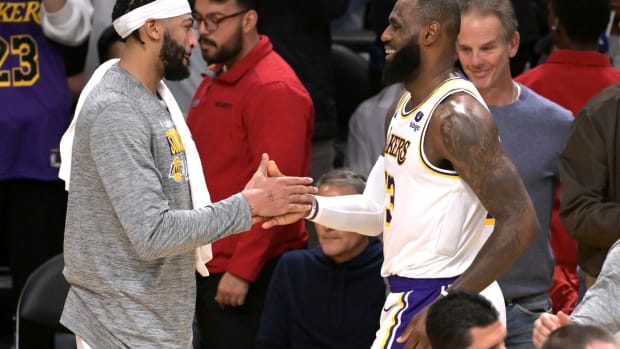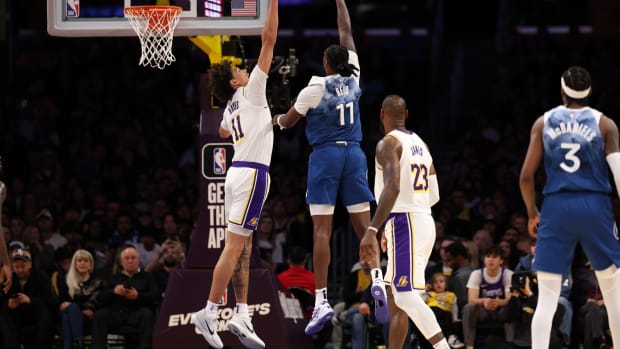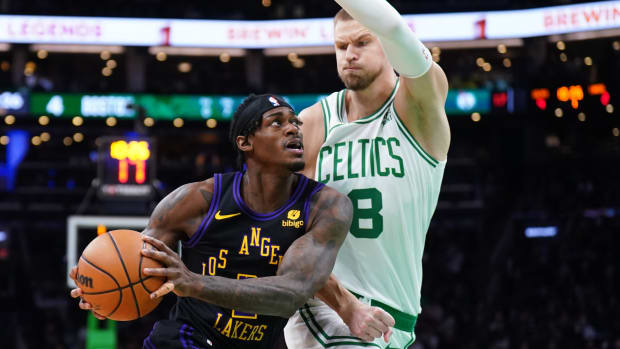Lakers Rumors: Anthony Davis Injury is Changing LA's Trade Plans
Your Los Angeles Lakers just keep kicking the can down the road, it seems.
Informed sources tell Jovan Buha of The Athletic that L.A. will be looking to possibly make a deal to improve its roster later this month through till the middle of January.
Los Angeles has gotten off to a bumpy 13-17 start this season, due mostly to shallow depth around oft-injured stars LeBron James and Anthony Davis. This is a bit of a bummer for L.A. fans eager to see the team make changes and shore up its depth around James and Davis.
The Lakers front office, led by team vice president of basketball operations Rob Pelinka, had initially floated the possibility of waiting till mid-November to make an assessment of the team's roster and perhaps making some player exchanges, then mid-December when most contracts signed this past summer could be moved, and now we've arrived at a timeline possibly extending to mid-January.
Buha notes that every Laker not named LeBron James or Anthony Davis (and really, the injury-prone Davis only has two years left on his deal and should be considered movable) is seen as tradable by L.A. brass. For salary-matching purposes, the players inked to non-minimum salaries (Russell Westbrook, Patrick Beverley, Kendrick Nunn and potentially even Lonnie Walker IV) would need to be involved in a deal. Given that Walker is a good player on a reasonable deal, L.A. most likely wants to retain him, while getting off the money of the team's three overpaid veterans guards.
Though the Lakers are reticent to flip Westbrook, who has fit in better for the team off the bench, Buha writes that they are still amenable to moving off his money.
Anthony Davis's health could throw a wrench in the proceedings entirely. Should the big man's foot injury linger much longer than a month, the team may not have much of a path towards making the postseason, and may thus want to preserve most of its future first-round draft capital.

